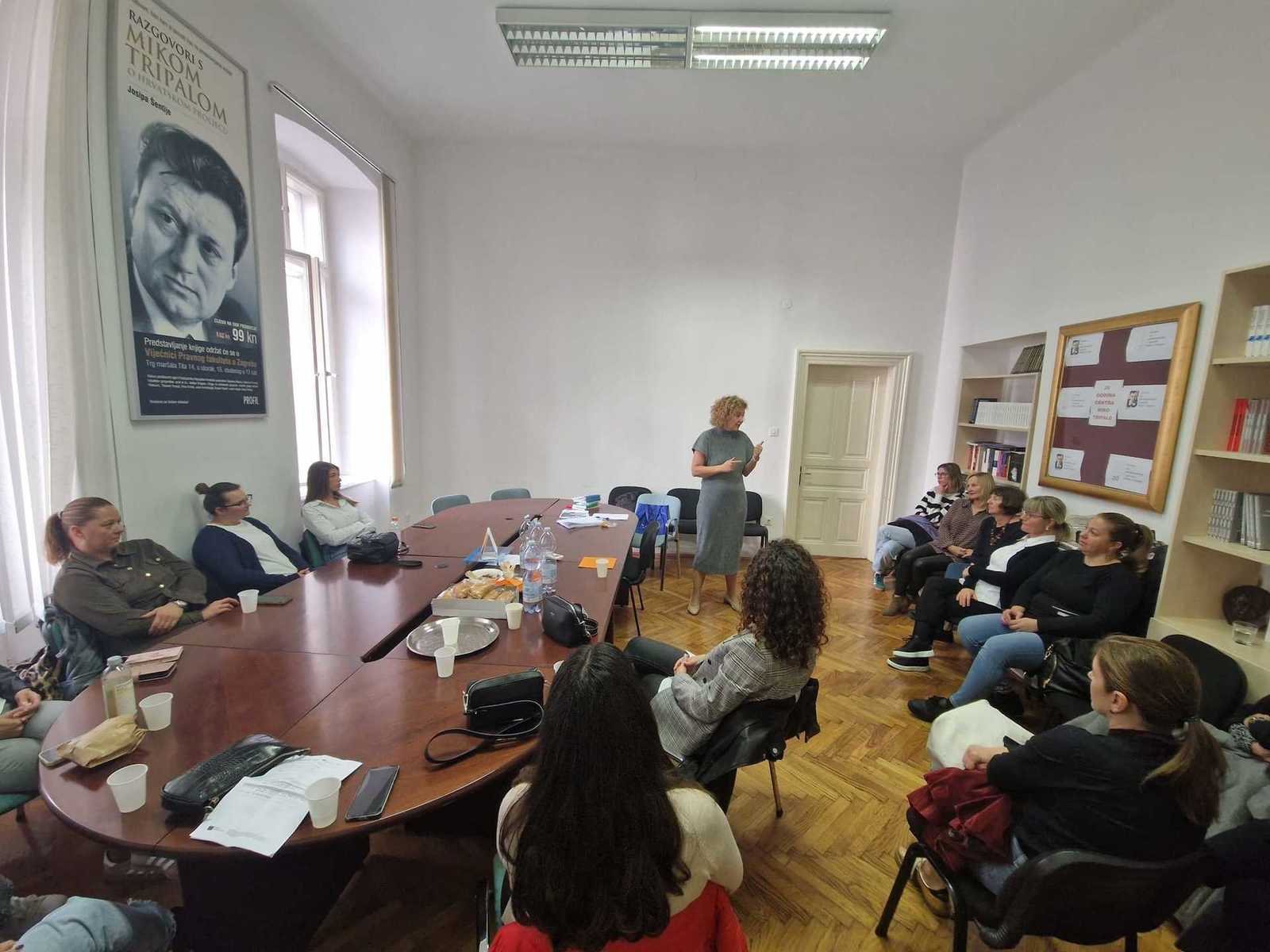Published 23.10.2025. | Nina Sauerborn

Experts, institutions and civil society organisations working together for a fairer society
On October 21 and 22, 2025, a two-day training was successfully held in Zagreb as part of the F.R.E.D. – Fostering Racial Equality and Diversity project, aimed at combating racism, discrimination and other forms of intolerance.
The training brought together representatives of institutions, civil society organizations and experts in the field of human rights with the aim of exchanging knowledge, experiences and concrete tools for effectively combating discrimination and strengthening social inclusion.
Lectures and workshops were held by:
- Assoc. Prof. Antonija Petričušić,
- Deputy Ombudswoman Tatjana Vlašić, Office of the Ombudsman
- Natalija Havelka, LL.M., Executive Director of the Center for Peace – Osijek
📍 Venue: Center for Democracy and Law "Miko Tripalo"
The training program was divided into two thematic days:
Day 1: Theoretical framework – Discrimination and minority rights
The participants were introduced to the legal and institutional mechanisms for combating discrimination, relevant EU directives, national legislation and the latest case law in the field of racial and intersectional discrimination.
Day 2: Experiential application – Protection of minority rights and combating discrimination
The second day was focused on practical challenges and examples from the daily work of organizations and institutions – from free legal aid to victims of discrimination to regional cooperation and stakeholder networking. The education was an opportunity to learn, exchange experiences and build cooperation among stakeholders who advocate for a fairer and more inclusive society on a daily basis.
The F.R.E.D. project is implemented by:
- Centre for Peace, Nonviolence and Human Rights – Osijek
- Centre for Peace Studies
- Office of the Ombudswoman
- Irish Network Against Racism (INAR)
.
.
.
.
Funded by the European Union. The views and opinions expressed in this document are the sole responsibility of the authors and do not necessarily reflect the views of the European Union or the Directorate-General for Justice and Consumer Protection of the European Commission. Neither the European Union nor the granting authority can be held responsible for them.